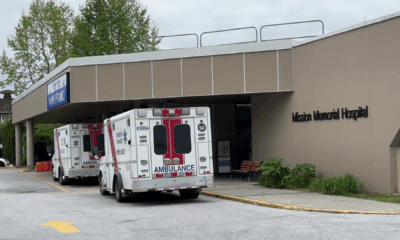Local News
Ban on lighters, not the right ‘focus’: Vancouver drug advocate

The City of Vancouver could be banning the sale of a type of butane lighter soon to enhance safety, but a drug advocate thinks the city’s focus is in the wrong place.
In a report, the city council seeks to approve the ban of “continuous flame butane lighters.” The reports suggest that Vancouver Fire Rescue Services (VFRS) expressed a public safety and fire risk concern related to the increased frequency of smoker material-related fires in 2023.
The city says this risk can be eliminated with a ban.
“The retail sale of continuous flame butane lighters as a proactive measure to increase public safety and potentially reduce
the number of fire-related incidents involving these products,” it said.
The reports say VFRS reported a surge of fire incidents in 2023 particularly in Single Room Occupancy (SRO) buildings — reflecting a 31 per cent increase in structure fires.
“SRO residents are 67 times more likely to experience a structure fire than other residents,” the report said.
“That is significantly influenced by the use of continuous flame lighters in SRO.”
The report also says there has been a shift in drug consumption methods, from injection to inhalation. BC Coroners Service says the largest mode of consumption of substances was smoking — at 65 per cent. This is because people want to eliminate the risk of other health-related harms through the use of needles.
However, Brittany Graham, the Executive Director of the Vancouver Area Network of Drug Users (VANDU) says this type of ban does not look at the core issue of what’s happening with fire safety. She says there needs to be more funding towards fire safety and materials in places like single room occupancy hotels.
“We need better buildings for folks to be living in with better fire regulations,” she said.
She says fire safety training and the provision of safety materials like fire extinguishers are essential, but unfortunately, there is no budget for that.
“There is a small pilot project that is running through private SROs through a small community organization that is teaching fire safety and giving out these materials… The fire department doesn’t have any budget to support this moving forward,” she said.
The advocate says another concern with a ban like this could be an increase in police interaction with people.
“We are always concerned about more police interaction because we’ve seen when more police are in people’s lives, they are more stigmatized or less likely to access services,” she said.
Graham says, ultimately the goal is to work on prevention.
“We need more prevention services like education, empowerment of people to understand what fire safety looks like how they would implement that into their own life and be able to have access to things like fire extinguishers,” she said.
She says that VFRS is concerned about the increase in fires, it advocates for housing and homelessness services to implement fire safety.
“Whether it’s like the actual extinguishers on the walls or the water circuits above the smoke detectors. Many of these things don’t work in many buildings,” Graham said.
She says it takes a long time for buildings to fix these things, and sometimes they never do.
“This is a much bigger issue and we need to be thinking much higher up in the bigger system instead of looking at the individual person and they’re the things they’re purchasing,” the advocate said.












